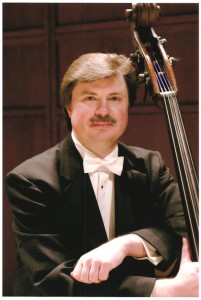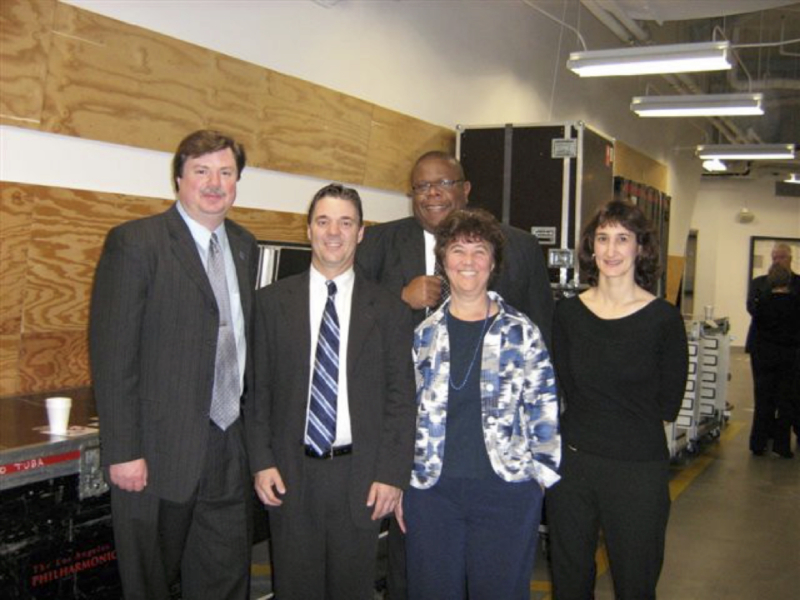
Photo credit: Michael Zirkle
The economic conditions that have led us to a year of crisis for orchestras in America have also spawned a new phrase for the rhetoric about our field: “The New Economic Reality.”
I have to confess that I don’t really have any idea what that means. I don’t mean to be obtuse—clearly I know what those who use that phrase are talking about. But we are in a recession, and I’m not sure what’s so new about that. While this is possibly the worst recession of our lifetimes, it has nonetheless happened before, and many times at that. Recessions have always been followed by a recovery, and this one will be as well.
In 1958 the United States found itself mired in a deep recession. Sales of automobiles that year fell 31%, and unemployment in Detroit stood at 20% (a comparable figure to 2009). There was a debate within the Eisenhower administration about the budget, with the President insisting on a balanced budget from the Congress, and with Vice President Nixon concerned that such a balanced budget could deepen the recession, leading to mid-term election losses and undermining his own campaign for the presidency in 1960. Eisenhower won out, the recession deepened, and Nixon lost the 1960 election, due in part to the economy (and also several thousand votes harvested from cemeteries on the outskirts of Chicago). I’ve always thought the lesson of this was that, in a recession, you don’t balance your budget, but you manage your debt.
There are major differences between all of these past recessions and the one we face today. None of these differences are more profound that the omnipresence of the 24-hour news cycle. It seems that the only industry that is truly thriving now is punditry, and the more outrageous the commentary, the more the pundit profits. Remember, these are the folks that assured us that gas prices would remain at over $5 a gallon throughout this past year. There is no penalty for being wrong—or for being irresponsible. In fact, as long as it is outrageous and loud, the talking heads are rewarded. Isn’t that the definition of a snake oil salesman? Someone who profits from the fear they promulgate.
In past times ideologues had to have their ideas assimilated into society, but today they have virtually uncensored, open platforms. There are cable news channels devoted to ideology, and websites galore that publish extremist views unchallenged. I’ve become unable to watch even those who profess to share my personal political ideology. None of these paid pundits are helping America. Instead, they merely preach a kind of apocalypticism in a culture where, if it bleeds, it leads. This pervasive negativity and bipolar debate permeates all of society, hindering recovery and casting a pall generated and spread by ratings.
Our field is no less immune than any other, and in some ways even more susceptible due to the negative perspective of the arts, and of the future of the arts, that we have long fought against. We must resist succumbing to this negativity as we ask ourselves how to best weather this storm.
In my view, “the new economic reality” is really just “the new apocalypticism.”
I heard a story recently on NPR about Elkhart, Indiana, a town known as “The RV Capital of America.” Apparently, very few people are buying RVs in the recession, and Elkhart’s economy is in terrible shape. A resident of Elkhart wrote to NPR, saying that he wished the media would stop covering the situation in Elkhart as a convenient story of economic disaster. He likened it to the coverage of Allentown, when the steel mills shut down in the 1980s. He said that “all Allentown got out of it was a Billy Joel song.” When we hear these stories, no one is thinking that Elkhart might be a bargain location to move a business, now with lower real estate costs and a ready work force. Instead, for the benefit of a political point, the town is portrayed as dead.
In this time of concern for the future of our orchestras, we must not allow a rhetoric of failure to negatively impact our recovery and the future of our orchestras. We must not allow a cyclical economic downturn to fundamentally alter the mission of artistry and community service our orchestras provide.
Musicians ultimately are the biggest donors to their own organizations. We are seeing that again when in this time of need our musicians are demonstrating incredible flexibility and dedication. We are adjusting our contracts, we are responding to “An” economic reality, even if it isn’t a “New” economic reality. That catch phrase isn’t required to get musicians’ attention. We know what is happening. What employees would have done more? The musicians of the Honolulu Symphony have not been paid in 16 weeks, yet they continue to fight for the 110 year old orchestra with inspiring commitment.
In the negativity of the media, unions often are portrayed as inflexible. The debate has come up in the auto industry, where people wistfully point to non-union auto manufacturing in the south as an example that the union workers of Detroit should follow. The comparison boggles my mind.
These factory jobs were viewed as a way for Americans to march into the middle class, and that would never have been possible without the unions. Now, in this market, the unions of that industry have shown the flexibility that musicians have, and made adjustments needed to save their company. And while times have changed, industries have changed, and economies have changed, the negative view of the union’s role continues to roil. When did it become a part of America that the worker should aspire to less?
Our musicians have a unique and intimate knowledge of their field, and we must work to share that education with our boards. Every crisis is also an opportunity, and, in this time of economic crisis, we must seek out the opportunity to share our knowledge with our boards so that together we can inspire our communities to invest in the growth of our orchestras. As I have often written, no “business” or other organization ever solved a financial problem by offering an inferior product to its consumers.
Even in this difficult time, we are seeing good managers leading their organizations to new eras of growth. We cannot allow others to use this economic downturn as an opportunity to reduce our greatest artistic and cultural organizations to a size that they find more manageable. Instead, we must find managers than can inspire boards and communities. In the absence of such leaders, the musicians themselves must be the advocates for their orchestras.
This recession will end. A recovery awaits. The Wall Street Journal recently predicted that the recession will end in September, but we must be wary of all punditry at this point. In fact, even if the recession does end soon, the lag effect on certain economic factors, such as unemployment, will remain. Our orchestras must be prepared to participate in the impending recovery. We can only achieve that by continuing with our positive message of hope, and by rededicating ourselves to the preservation of America’s greatest cultural institutions.
This is no time to retreat. This is a time that calls for leadership, within our orchestras, within our communities, and within our union.

ICSOM Chairperson Bruce Ridge (far left) poses with Los Angeles Philharmonic members (left to right) James Miller, John Lofton, Meredith Snow, and Anne Marie Gabriele backstage at Walt Disney Hall during a recent visit.





